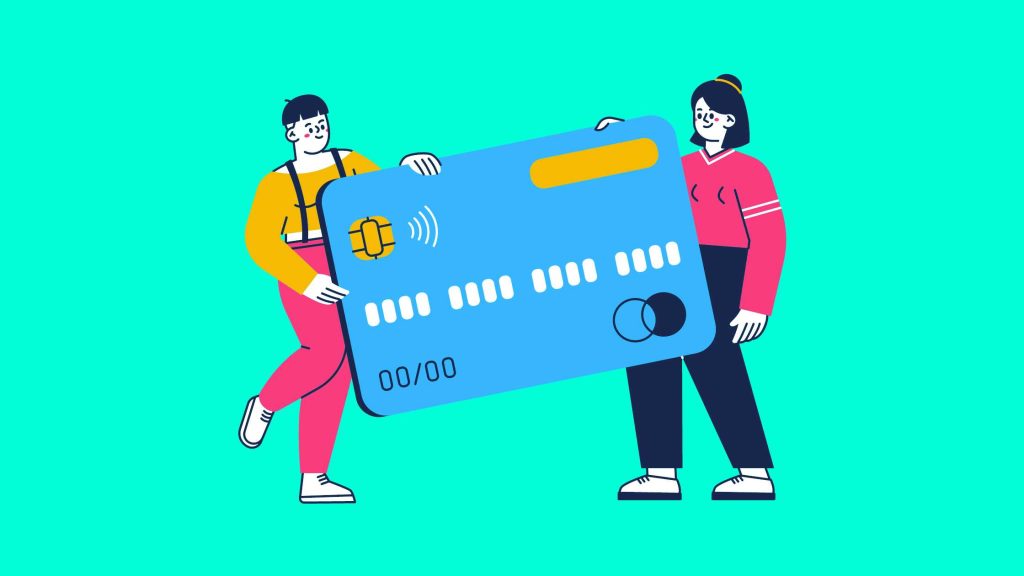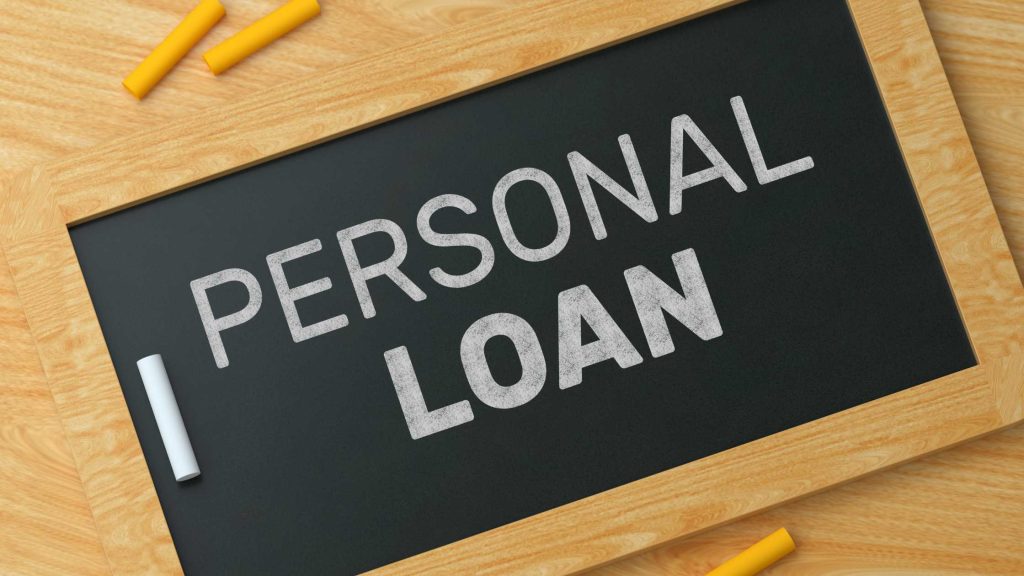Personal Loan or Credit Card ?: Why Low Interest Rates ? Which Would You Choose? : Comprehensive Guide 2024
Personal Loan or Credit Card : When it comes to managing financial needs, both personal loans and credit cards are common options that people turn to. These two forms of borrowing are widely popular because they offer quick access to funds without the need for collateral. However, while they both allow individuals to access credit, they are quite different in their structure, repayment terms, and overall utility.
Table of Contents
In this essay, we will explore the features of personal loans and credit cards, compare their benefits and drawbacks, and help you decide which option might be the most suitable based on various circumstances.
Understanding Personal Loans and Credit Cards

Both personal loans and credit cards allow you to borrow money, but they differ significantly in how they work.
Personal Loans:
Personal loans are typically unsecured loans that offer a lump sum of money, which you then repay over time, usually in fixed monthly installments. The repayment period, also known as the loan tenure, generally ranges from one to five years, although some banks offer longer terms up to 10 years. Personal loans are a good option when you need a larger amount of money upfront, such as for consolidating debts, medical expenses, home renovations, or financing a wedding.
Credit Cards:
On the other hand, a credit card gives you access to a revolving line of credit, meaning you can borrow up to a certain limit and continue borrowing as long as you pay back at least the minimum amount due each month. Credit cards are generally more suited for smaller, day-to-day expenses, and they offer benefits such as reward points, cashback, and the ability to convert purchases into EMIs (Equated Monthly Installments). Credit cards also allow you to delay full payment for a period, typically up to 30-45 days, depending on the billing cycle, before any interest is charged.
Interest Rates: Why Are They Lower?
When it comes to comparing personal loans and credit cards, one of the most important factors is the interest rate.
Interest Rates on Personal Loans:
The interest rates on personal loans vary depending on the lender, the borrower’s credit profile, and the loan tenure. Personal loan interest rates generally range between 10% and 22% per annum. Although these loans are unsecured, the higher loan amounts, longer repayment periods, and the borrower’s creditworthiness all contribute to the relatively high-interest rates compared to secured loans like home loans or auto loans.
Interest Rates on Credit Cards:
Credit cards typically carry a monthly interest rate that ranges from 2% to 4%, which may seem lower at first glance. However, since credit card interest is compounded daily and the annual percentage rate (APR) is calculated based on this compounding, the effective interest rate can easily exceed 20% to 40% annually if balances are not paid off in full. This means that if you only pay the minimum due each month, interest can quickly accumulate, leading to much higher total repayment amounts over time.
Also Read : Lowering Your Credit Card Interest Rate: 4 Key Strategies for Financial Success
While the monthly interest rate on a credit card may appear lower than that of a personal loan, it can become a costly form of borrowing if not managed carefully. The key to using credit cards wisely is to pay off the entire balance before interest is charged, which can be a very cost-effective way to borrow short-term funds.
Personal Loans: When Should You Opt for One?

Personal loans are best suited for situations where you need a substantial amount of money that you plan to repay over a longer period. Here are a few scenarios where taking out a personal loan might be the best choice:
- Medical Emergencies:
Medical treatments can be expensive, especially when they are unexpected. A personal loan can provide immediate access to funds to cover medical bills, surgeries, or long-term care without requiring you to deplete your savings. Unlike credit cards, which might have lower borrowing limits, personal loans can offer larger sums of money that can be repaid over several years. - Debt Consolidation:
If you have multiple high-interest debts, such as credit card balances or payday loans, consolidating these into a single personal loan can be a smart financial move. By taking out a personal loan with a lower interest rate than your existing debts, you can reduce your monthly payments and simplify your repayment process. This can also help you save on interest costs over time. - Large One-Time Expenses:
Events like weddings, home renovations, or purchasing a vehicle can require a significant amount of money upfront. While credit cards are often used for these expenses, personal loans can be a better option if you want to avoid the higher interest rates and shorter repayment periods associated with credit cards. Personal loans offer the advantage of fixed monthly payments and lower interest rates over a longer tenure. - Business Expenses:
Personal loans can also be used to fund a small business, especially if you don’t qualify for a traditional business loan. Whether you need money to buy equipment, hire staff, or expand your operations, a personal loan can provide the necessary capital to help grow your business. However, it’s important to ensure that you have a solid plan for repayment, as defaulting on a personal loan can negatively impact your credit score. - Home Renovation:
If you’re planning to renovate your home or undertake a major improvement project, a personal loan can provide the funds you need. Unlike a home equity loan, which is secured by your home, a personal loan is unsecured, meaning you won’t risk losing your property if you default on the loan. Additionally, personal loans typically offer faster approval and disbursement times, making them a more convenient option for urgent renovation needs.
Credit Cards: When Are They the Best Option?
While personal loans are ideal for larger expenses, credit cards are more suited for smaller, everyday purchases and short-term borrowing. Here are some situations where a credit card might be the better option:
- Everyday Purchases:
Credit cards are convenient for daily purchases like groceries, fuel, and dining. Most credit cards offer rewards programs, allowing you to earn points or cashback on your purchases. If you regularly pay off your credit card balance in full each month, you can take advantage of these rewards without paying any interest. - Emergency Expenses:
Credit cards can also be useful in emergencies when you need immediate access to funds. For example, if your car breaks down or you need to make a last-minute travel booking, a credit card can help cover the cost. Since most credit cards come with an interest-free grace period, you won’t incur any charges if you repay the amount within this period. - Building Credit:
Credit cards are one of the easiest ways to build and maintain a good credit score. By using your credit card responsibly—making purchases, paying off the balance in full, and avoiding late payments—you can improve your creditworthiness over time. A strong credit score will make it easier for you to qualify for larger loans, such as a mortgage or car loan, in the future. - Purchases with EMI Option:
Many credit cards offer the option to convert large purchases into EMIs, allowing you to pay for expensive items like electronics or appliances over time. While this option often comes with a fixed interest rate, it can be more convenient than taking out a personal loan for smaller purchases. The ability to break down payments into manageable installments can help ease the burden of larger purchases. - Short-Term Borrowing:
If you need to borrow a small amount of money for a short period, a credit card can be a more flexible option than a personal loan. Since credit cards offer revolving credit, you can borrow and repay funds as needed, without having to apply for a new loan each time. This makes credit cards an ideal choice for managing fluctuating expenses or covering gaps between paychecks.
Comparing Personal Loans and Credit Cards: Which One Should You Choose?

When deciding between a personal loan and a credit card, it’s essential to consider your specific financial needs and goals. Here are some factors to take into account:
- Loan Amount:
If you need a large sum of money, a personal loan is likely the better option. Personal loans offer higher loan amounts and longer repayment periods, making them suitable for significant expenses like home renovations or debt consolidation. Credit cards, on the other hand, have lower credit limits, which may not be sufficient for larger financial needs. - Repayment Period:
Personal loans come with fixed repayment periods, usually ranging from one to five years. This makes them ideal for borrowers who prefer the predictability of fixed monthly payments and want to pay off their debt over a longer period. Credit cards, on the other hand, offer more flexible repayment options, as you can choose to pay off the balance in full or make minimum payments each month. - Interest Rates:
While credit cards often have lower monthly interest rates, the compounding nature of these rates can make them more expensive in the long run if you don’t pay off the balance in full each month. Personal loans, on the other hand, come with fixed interest rates that remain consistent throughout the loan tenure. If you plan to carry a balance for an extended period, a personal loan may offer more affordable financing. - Fees and Charges:
Both personal loans and credit cards come with various fees, including processing fees, late payment fees, and prepayment penalties. It’s essential to compare these fees when choosing between the two options. Credit cards, for example, may have annual fees, while personal loans may charge a processing fee upfront. - Credit Score Impact:
Using credit cards responsibly can help you build and maintain a strong credit score, as they report your payment history to credit bureaus. Personal loans also impact your credit score, but the effect may be more significant if you miss payments or default on the loan. If you’re looking to improve your credit score, a credit card may be the better option, as long as you use it wisely.
Personal Loan or Credit Card – Conclusion

Both personal loans and credit cards have their advantages and disadvantages, and the best option depends on your specific financial needs and circumstances. If you need a large sum of money for a one-time expense and prefer fixed monthly payments, a personal loan is likely the better choice. However, if you’re looking for a more flexible option for smaller, short-term borrowing, a credit card may be more suitable.
Buy Now : News & Magazine Website AI Automated
Ultimately, the key to making the right choice is to understand your financial goals, assess your borrowing needs, and compare the terms and interest rates of both options. By doing so, you can make an informed decision that aligns with your financial situation and helps you achieve your goals without falling into debt.
Keywords : Personal Loan or Credit Card – Personal Loan or Credit Card 2024 – Personal Loan or Credit Card 2025 , Personal Loan or Credit Card Comparison , Personal Loan or Credit Card which is best ?



